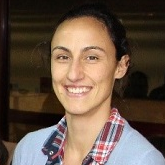Land and Farming System Dynamics on the Mediterranean Basin: From Global to Local Case Studies
A special issue of Land (ISSN 2073-445X).
Deadline for manuscript submissions: closed (30 April 2020) | Viewed by 42421
Special Issue Editors
Interests: landscape agronomy; agricultural and farming system dynamics; land system science; ecosystem services; sustainable intensification; peri-urban agriculture
Interests: environmental sciences; territorial planning; natural resource management; sustainability; systems thinking; transdisciplinary; co-construction of knowledge; participatory methodology and skilled facilitation
Interests: landscape agronomy; farming system dynamics; cropping/farming system design; territorial/agricultural scenario analysis; multi-criteria sustainability assessment; peri-urban agriculture; territorial projects
Special Issue Information
Dear Colleagues,
The Mediterranean basin has a long history of agricultural production contributing to many other ecosystem services at the same time. Mediterranean farming systems are characterized by small scales, low intensity, and high natural value systems, e.g., silvopastoralism, mixed farming, or agroforestry. Today, these systems coexist with more intensive and input-demanding ones, and are mainly located on the coastal plain where other pressures coexist, such as strong urbanization and massive tourism. In this Special Issue, we invite papers in form of case studies that present and discuss current farming system dynamics in the Mediterranean, and their impacts on farming practices, species diversity, and local food systems. Moreover, we encourage papers aimed at identifying and discussing the main drivers of territorial dynamics in these areas at different spatial scales. Case studies involving stakeholder perception of changes and their future visions for scenario analysis are welcome. The link between identified environmental patterns and the capacity of the agricultural systems to contribute to the local food system of urban areas is also of interest.
Dr. Marta Debolini
Dr. Maria Helena Guimaraes
Dr. Elisa Marraccini
Guest Editors
Manuscript Submission Information
Manuscripts should be submitted online at www.mdpi.com by registering and logging in to this website. Once you are registered, click here to go to the submission form. Manuscripts can be submitted until the deadline. All submissions that pass pre-check are peer-reviewed. Accepted papers will be published continuously in the journal (as soon as accepted) and will be listed together on the special issue website. Research articles, review articles as well as short communications are invited. For planned papers, a title and short abstract (about 100 words) can be sent to the Editorial Office for announcement on this website.
Submitted manuscripts should not have been published previously, nor be under consideration for publication elsewhere (except conference proceedings papers). All manuscripts are thoroughly refereed through a single-blind peer-review process. A guide for authors and other relevant information for submission of manuscripts is available on the Instructions for Authors page. Land is an international peer-reviewed open access monthly journal published by MDPI.
Please visit the Instructions for Authors page before submitting a manuscript. The Article Processing Charge (APC) for publication in this open access journal is 2600 CHF (Swiss Francs). Submitted papers should be well formatted and use good English. Authors may use MDPI's English editing service prior to publication or during author revisions.
Keywords
- Mediterranean
- farming systems
- land systems
- high nature value farmland
- stakeholders
- scenarios
- changes
- intensification
- abandonment







